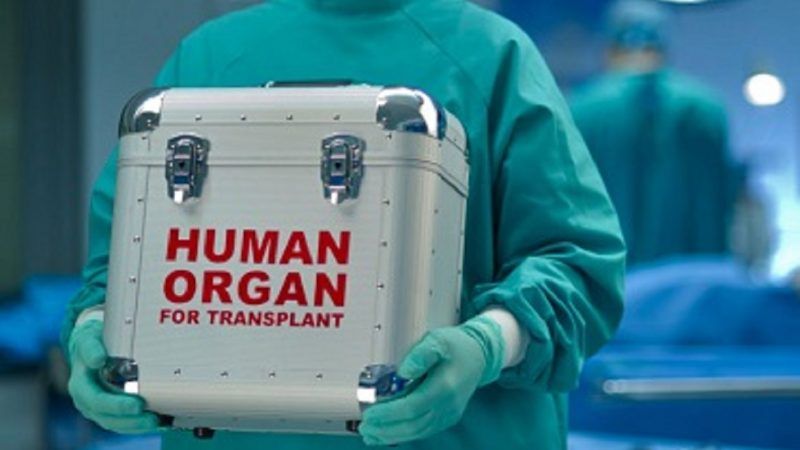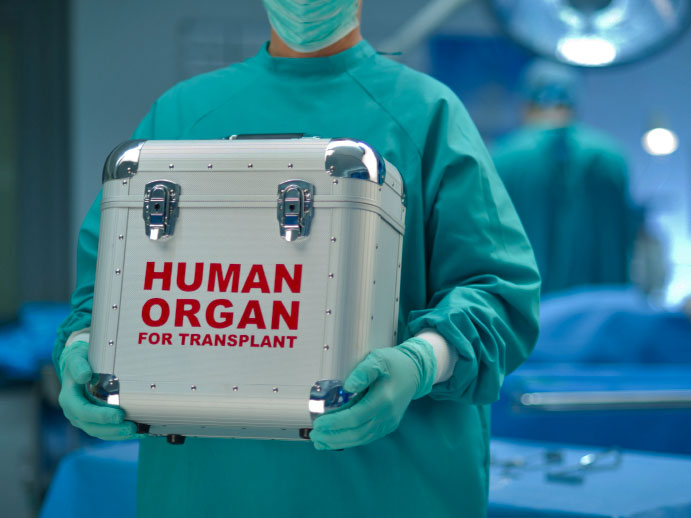Laws Banning Organ Markets Kill Even More People than Previously Thought
New analysis finds that thousands more die every year because the law forbids purchase of the kidneys they need to survive.


Many Americans die every year because they need kidney transplants, but cannot find one in time, in large part due to federal laws banning organ sales. A recently published article finds that the number of such deaths is likely to be much greater than previous estimates indicate. It finds that over the 30 years between 1988 and 2017, an average of over 30,000 Americans have died each year, because the ban on organ sales prevented them from getting transplants in time. Here is a summary of the conclusions, recently published in the Journal of the American Society of Nephrology (based in part on this article in the same journal):
[T]he death toll from ESRD [kidney failure] s very high in large part because of the severe shortage of transplant kidneys. Roughly speaking (all variables may not occur in exactly the same year), the incidence of treated ESRD is currently, about 126,000 patients per year, but only about 31,000 (25%) are added to the waiting list for a kidney from a deceased donor…. Moreover, only 20,000 (16%) actually receive a transplant kidney, of which 14,000 (11%) are from deceased donors and 6000 (5%) are from living donors. The approximately 106,000 (84%) who do not receive a transplant are fated to live an average of 5 years on dialysis therapy before dying prematurely….
Most of the focus of concern in the transplant community has been on the 25% of patients with ESRD who are added to the kidney waiting list, particularly how many receive a transplant, die, or are removed from the list because they become too sick to transplant. Little attention has been paid to the 75% who are not added to the list. But it is common knowledge that many of these patients with ESRD would medically benefit from a transplant, and if there was no kidney shortage would be recommended for the waiting list, would be accepted by a transplant center, and would receive a transplant….
What percentage of patients with ESRD fall into this category? No one knows for certain. However, to see the full extent of the harm done by the kidney shortage and the potential benefit from ending it, let us assume that 50% of those who are diagnosed with ESRD could medically benefit from a transplant. (This assumption is consistent with the findings of Schold et al….) Thus, half of the 126,000 patients who are currently diagnosed with ESRD each year 63,000 patients might medically benefit from a transplant. However, if only 20,000 patients per year receive a transplant, the remaining 43,000 would join the growing toll of those who die prematurely because of the kidney shortage…. We can extend this grim logic from the current time bac over thepast 30 years for which we have data….. The cumulative premature death toll…. from 1988 to 2017 was a horrendous 982,000…. Additionally, if we extrapolate the trend in ESRD diagnoses and transplants over the past 10 years forward to the next 10 years, the death toll would increase by an additional 465,000.
As the authors recognize, the estimate of 982,000 premature deaths over a thirty year period is very inexact. But even if the true figure is only, say, half as high, it still represents a vast amount of unnecessary suffering that could largely be prevented simply by allowing financial compensation for organ donors, thereby increasing the supply of available kidneys to the point where it can meet the demand.
By banning organ markets, the US government and other governments with similar policies thereby cause enormous needless suffering and death. It also deprives society of the productivity of the people who die prematurely and/or spend years in kidney dialysis that could have been avoided. Obviously, not everyone will want to become a kidney donor, even if monetary compensation were available. Some would not be willing to, and others are ineligible for medical reasons. But, if the authors' figures are correct we only need some 30,000 to 40,000 additional donors per year, out of a US population of over 300 million people. That should be a very feasible goal. In addition to offering payment to living donors, we can pay potential donors in advance for the "option" of harvesting organs after they pass away, a strategy that eliminates any negative health effects on donors, since, by definition, the option can only be exercised after they have died, and have no further use for the organ themselves.
The injustice of status quo policy is more than just a matter of failing to help people in need. It is the equivalent of actively killing them. Consider a situation where Bob needs to buy food in order to keep from starving. Producers are willing to sell him what he needs at market prices, but the federal government passes a law saying that it is illegal to sell food for a profit. Bob is only allowed to acquire such food as producers are willing to give him for free. If Bob starves as a result, the government is actively culpable for his death. It cannot claim that it was merely an innocent bystander who refused to help him in his time of need. The same point applies if the government (or anyone else) uses coercion to prevent people from selling organs that ESRD patients need to live.
Unlike in the case of food, it is unlikely that ESRD patients would buy what they need directly from sellers. Most likely, the actual purchases would be done by hospitals, health insurance companies, and other specialized enterprises, which could screen them for quality and then offer them to patients (as is the case with many other types of transplants and complex medical supplies). But that does not change the morality of the situation.
There are a variety of objections to legalizing organ markets. But to validate current law, they have to be compelling enough to justify killing thousands of innocent people every year. In my view, none of the standard arguments even come close to doing so. I address some of the most common ones here:
[M]any people oppose legalizing organ markets because they believe it would lead to exploitation of the poor. But most of them have no objection to letting poor people perform much more dangerous work, such as becoming lumberjacks or NFL players. If it is wrong to allow poor people to assume the risk of selling a kidney for money, surely it is even more wrong to allow them to take much greater risks in order to increase their income.
If you believe that organ markets must be banned because they exploit the poor, you must also argue that the poor should be forbidden to take jobs as lumberjacks and football players. If you believe that such considerations justify banning participation in organ markets even by the non-poor, than we must also categorically forbid monetary compensation for football players. Indeed, the case for banning the payment of football players is actually much stronger than that for banning organ markets. Unlike the ban on organ markets, a ban on professional football would not lead to the deaths of thousands of innocent people.
Other critics believe that organ markets must be banned because it is inherently wrong to "commodify" the human body. Yet most of them have no objection to letting a wide range of people profit from organ transplants, including doctors, insurance companies, hospital administrators, medical equipment suppliers, and so on. All of these people get paid (often handsomely) for helping transfer organs from one body to another.
Perversely, the only participant in the process forbidden to profit from the "commodification" of organs is the one who provided the organ in the first place. If you believe that people should be forbidden to sell kidneys because earning a profit from organs is immoral "commodification" of the body, you must either oppose paying all the other people who currently earn money from organ transplants, or explain why they, unlike the original owner of the kidney, are not also engaged in commodification…..
The same goes for people who argue that kidney markets should be banned because earning money from transactions involving body parts will somehow corrupt our morals. If the morals of doctors, nurses, and others are not corrupted as a result of repeatedly earning a large part of their livelihood from organ transplants, it is not clear why the morality of donors will be corrupted by earning money from selling a body part on just one or a few occasions.
I criticized the "exploitation of the poor" justification for banning organ markets in somewhat greater detail here, including pointing out that it cannot justify banning organ sales by donors who are not poor. The related argument that poor patients could not afford to buy kidneys in a market is also weak. The government can, if need be, subsidize the purchase of kidneys by poor patients, just as it currently subsidizes many other kinds of medical treatment for the poor. It would be far cheaper than the massive cost of paying for kidney dialysis, to say nothing of the cost of premature death, which deprives society of useful labor and the government of tax revenue. Even if we cannot get the subsidies completely right, that surely does not justify consigning thousands of people to death, any more than the absence of perfectly structured food subsidies justifies banning food markets and thereby causing large-scale starvation.
UPDATE: I think it is more accurate to describe the first piece quoted in this post as an "article" rather than a "study" (as I did originally), since it relies on data generated by previous publications, rather than its own original data. I have made the change accordingly.
